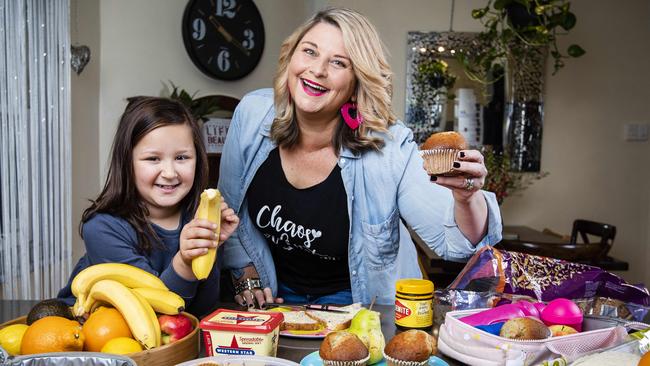Kids don’t like being told by schools what they should be eating, new study finds
Just exactly how kids feel about their lunchboxes being monitored, limits on sharing food and what is deemed as healthy has been revealed in a new study. Here’s what they think.

VIC News
Don't miss out on the headlines from VIC News. Followed categories will be added to My News.
Parents and kids don’t like being told by schools what they should be eating, what’s healthy and what should go in lunchboxes.
A new study has found they reject school messages about healthy eating as irrelevant, negative and inconsistent with their family life.
They don’t like their lunchboxes being monitored, think it’s sad that kids don’t share food unless they have allergies and don’t see items as good and bad.
Instead, families see food as communal, pleasurable and fun, and have a much more pragmatic view of what’s “healthy” and “unhealthy”.
Lead author JaneMaree Maher from Monash University interviewed children and parents from 50 Victorian families about the information about food taught in schools.
“Generally, children and parents felt school food messages are unclear, contradictory and not relevant to them,” she said.
This includes instruction about what to put in their child’s lunchbox. One parent said she “believed that the school was interfering too much which might have negative consequences for her child, including shame and fear”.
Professor Maher said parents rejected the moral “assumptions that if ‘unhealthy’ foods are in a lunchbox then children have made bad choices and parents are not caring enough to provide healthy food”.
As one mother explained, “it kind of feels like it’s above and beyond their responsibility to tell us what we should be feeding our children”.
Parents also said it was contradictory of schools to monitor lunchboxes, but promote unhealthy food and soft drinks for fundraisers and fair days.
Children also rejected the messages about sharing food, which is banned in most schools.
“There is a great deal of pleasure for children in sharing food and often these stories elicited fun and excitement, even though children knew that this behaviour was against the rules,” Professor Maher said.
The findings come as schools have long been understood to have a key role in educating children about healthy eating and activity, with a view to bringing this information home.
But researchers found the negative and punitive approach taken by many schools means kids and parents dismiss the information as irrelevant to the home setting.
Child behaviour expert Chrissie Davies, mother of Annabelle, 7 and Seth, 5, said she preferred a healthy, holistic approach to food. “I teach children to enjoy all kinds of food. We’ve had good food such as banana muffins sent home from kinder because they weren’t ‘healthy’ enough.
“It’s unfair to put this kind of pressure on families and make them feel they are not doing the right thing,” she said.
MORE NEWS:
RICHO WELCOMES NEW CUB TO THE FAMILY
ACTIVITIES TO GET KIDS OFF THE COUCH THESE HOLIDAYS

